
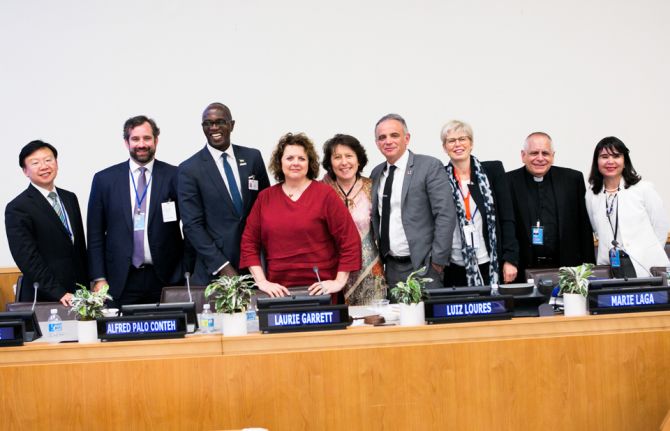
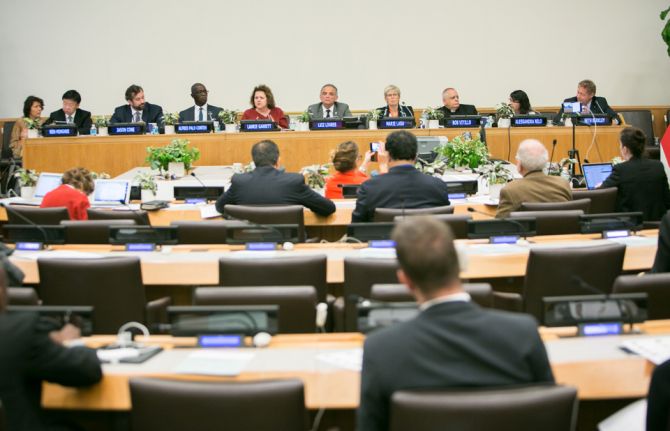
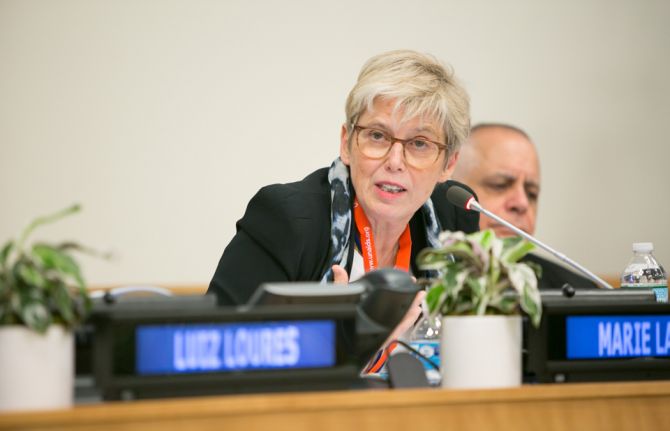
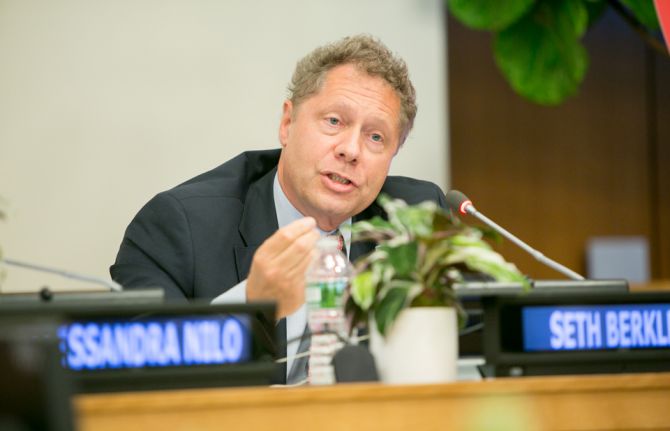
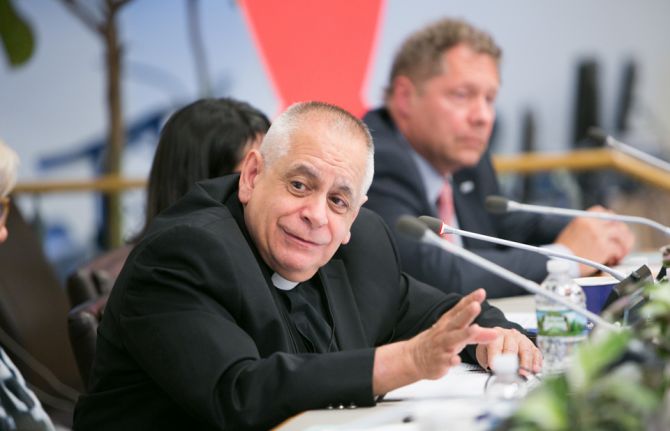

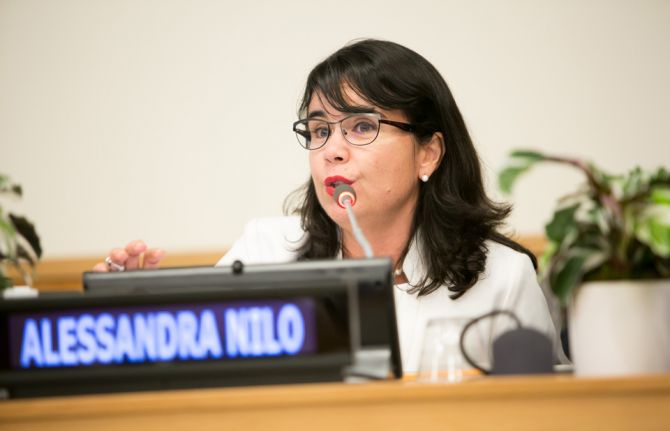
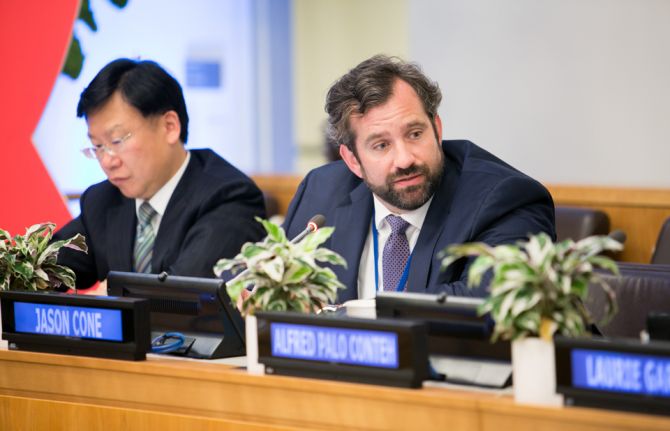
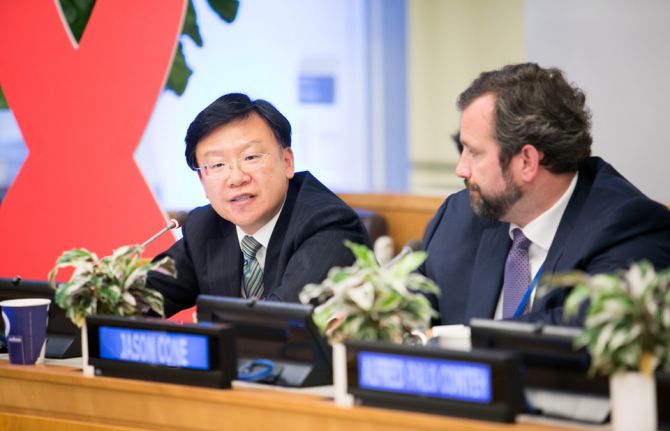
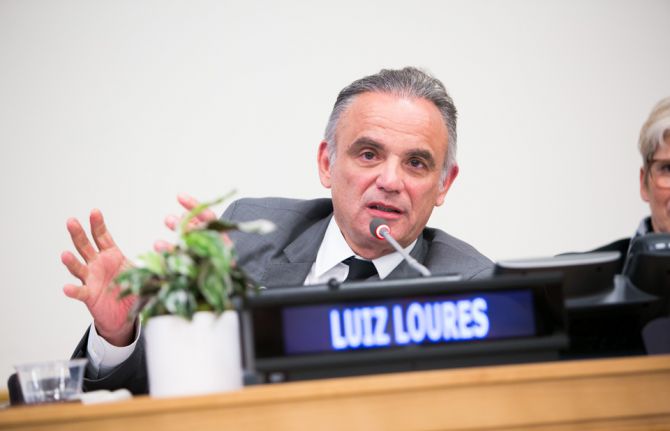
Update
Learning the lessons of responding to emerging epidemics, including AIDS, Ebola and Zika
09 June 2016
09 June 2016 09 June 2016The best ways to respond to emerging epidemics have been outlined by leading policy-makers and health advisers during a side event entitled “Addressing global health emergencies: lessons from AIDS to Ebola, Zika and other emerging epidemics” that took place on 9 June.
Political leadership, the involvement of communities and a joined-up emergency response were highlighted as vital at the side event, which took place on the margins of the United Nations General Assembly High-Level Meeting on Ending AIDS, held from 8 to 10 June in New York, United States of America.
The response to AIDS and, more recently Ebola and Zika, was used as a starting point to explore what lessons could be learned.
The discussion was chaired by Deputy Executive Director of UNAIDS Luiz Loures and moderated by Laurie Garrett of United States think tank the Council on Foreign Relations.
Panellists at the side event included Sierra Leone’s Minister of Internal Affairs, Alfred Palo Conteh, the Executive Director for Gestos, Brazil, Alessandra Nilo, the Executive Director of Doctor Without Borders, Jason Cone, the World Health Organization’s Assistant Director-General for HIV/AIDS, Tuberculosis, Malaria and Neglected Tropical Diseases, Ren Minghui, a professor from the Belgium Institute of Tropical Medicine, Marie Laga, and Monsignor Robert Vitillo, Special Adviser on Health and HIV to relief agency Caritas Internationalis.
The participants discussed how evidence from three decades of responding to HIV proved that responding to issues head-on within communities and engaging people living with HIV were essential.
The many similarities between HIV and outbreaks of Ebola and Zika allowed the participants to explore best practice when dealing with rapidly growing epidemics that are closely linked to poverty, inequality and gender.
The participants also examined how to overcome the fear, stigma and discrimination associated with epidemics so closely linked to sensitive topics, such as death and sexual behaviour.
The recommendations made at the side event included that steps should be taken to understand the cultural context of epidemics and that managing finances at the global level was necessary in order to tackle epidemics.
Other recommendations included integrating sexual, reproductive and human rights imperatives into the response, aligning new capacities to develop timely diagnostics, vaccines and medicines, ensuring that there are sufficiently qualified human resources and developing strong laboratory infrastructure and surveillance systems.
Quotes
“We know we need to go beyond the Political Declaration from earlier this week. What we do now needs to make sense. There’s no way to address AIDS today without working with and learning from the responses to many other emerging diseases.”
“In every single outbreak, we see stigma and we engender disproportionate fear. And yet those patients are the ones who should be embraced, but society shuns them because of their illness.”
“We know it’s an evolutionary certainty to have outbreaks. The question is, is the world prepared for them? Does the world take this seriously? Do we have our priorities right?”
“I think one of the lessons we have failed to learn from other diseases is that guidelines and response plans are often completely divorced from the social and economic realities of those patients that need them the most. But whether it’s AIDS, Ebola, or polio, we need to look hard and focus on how we are going to reach those last-mile communities that we need to.”
“With all due respect to many of the public health experts and governments in the room, but sometimes we speak in a way that is not understood in the best ways for the community. And that dialogue with the community needs to happen earlier. In an emergency, we don’t have time for it.”
“I think what we have learned from Ebola was decentralization. When the local religious leaders spoke, people listened. Community engagement and decentralization are key to fighting these epidemics.”
“Why are we not talking about the state’s responsibility in addressing stigma as a priority, because stigma is never related to just one issue—sexuality, gender, HIV status … layers of stigma come together!”



